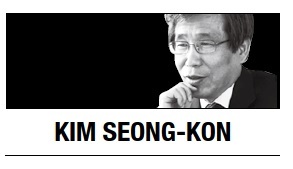
The world is not normal these days. Something has gone terribly wrong on planet Earth. Recently, the United Kingdom shocked the world by voting in favor of Brexit and the U.S. is displaying leanings that are a throwback to the isolationism of the 19th century.
Even though this might only be the result of the vitriolic rhetoric of a presidential candidate and the die has not been cast yet, I have a hunch that there is a consensus among many Americans on this. American isolationism is disappointing and even scary because it sounds like the U.S. will abandon its role as leader and peacekeeper.
Indeed, the world has become chaotic lately. A militant group that calls itself the Islamic State has terrorized the international community. So many innocent people have died because of random, brutal terrorist activities. In the past, ordinary people in the U.S., U.K. and Spain have been massacred. More recently, people in Belgium, France and Germany were brutally killed by cold-blooded terrorists. The scary thing is the unpredictability; you never know when and where your and your family’s lives will be in danger.
Generally speaking, there are two types of terrorism. One is the terrorism instigated by extreme political or religious ideologies. The other one is terrorism of personal vendetta. Muslim terrorists belong to the first category, while campus spree shooters in the U.S. usually belong to the second category. Both are equally bad and cowardly because, whatever the cause, terrorism invariably harms innocent bystanders. Terrorism is nothing but a coward’s vengeance and so cannot be condoned.
Unfortunately, Korea is exposed to both kinds of terrorism. People say that Korea is not safe from Islamic terrorist activities. At the same time, there are a growing number of potential terrorists who hold grudges and are resentful of others. These social outcasts can turn into terrorists who inflict suffering on our society and kill innocent people. The problem is that many people in Korea think of themselves as excluded and underprivileged, and, as a result, seethe with blind resentment against society.
While traveling to California a few months ago, I saw a heartbreaking but unnerving scene. A woman, presumably a destitute immigrant, was begging for money in the street, with her young teenage son. Ashamed, the boy tried to get away, but the mother dragged him to her side. On his face, I saw humiliation and frustration. Suddenly, it occurred to me that the boy’s shame would turn into hatred and fury someday if the situation did not improve. In resentment, he may end up grabbing a gun and shooting others indiscriminately. Then he will be shot by the police and his miserable life will be over.
The same thing may happen in Korea as well. According to the census bureau, there are approximately 160,000 foreign brides and 208,000 children from those marriages are under the age of 18 in Korea today. The Dong-A Ilbo daily recently reported that many children from multicultural families are dropping out of school due to the racial prejudice from their peers and teachers, language barriers and cultural differences. It is obvious that if they become dropouts they will find it hard to get employed.
Gradually, like so many other Koreans, they will nurture grudges against Korean society. Who knows, one day they may detonate a bomb at public places in resentment or shoot innocent people indiscreetly. The collateral damage would be huge.
In order to avoid terrorist attacks, we should reinforce security measures at airports and public places. At the same time, we should discard our prejudices and stop discriminating against children from multicultural families. We should care for them, guide them down the right path and help them find a job.
At school, we should stop teaching that the Korean people are homogeneous. That has been proved to be a totally dubious, ungrounded theory. Besides, we now live in a world where homogeneity, whether ethnic or cultural, is no longer an advantage. If our textbooks still carry such content, they should be revised immediately.
We should teach our students what Edward Said wrote in “Culture and Imperialism”: “All cultures are involved in one another; none is single or pure, all are hybrid, heterogeneous, extraordinarily differentiated, and unmonolithic.”
We should also let our students hear what Said says, “If everyone were to insist on the radical purity or priority of one’s own voice, all we would have would be the awful din of unending strife, and a bloody political mess, the true horror of which is beginning to be perceptible here and there in the reemergence of racist politics in Europe.”
We should nurture our students to become global citizens, not parochial ultra-nationalists or ideologically charged extremists. We should teach them that no nation can exist alone and thus we should be on good terms with other countries and other peoples. We should teach them to embrace ethnic and cultural differences. We should also confess that we are neither a homogeneous people nor a homogeneous culture.
Only then can we diffuse the ticking time bomb of violence and counter-violence.
By Kim Seong-kon
Kim Seong-kon is a professor emeritus of English at Seoul National University and president of the Literature Translation Institute of Korea. -- Ed.








![[Weekender] Korea's traditional sauce culture gains global recognition](http://res.heraldm.com/phpwas/restmb_idxmake.php?idx=644&simg=/content/image/2024/11/21/20241121050153_0.jpg)